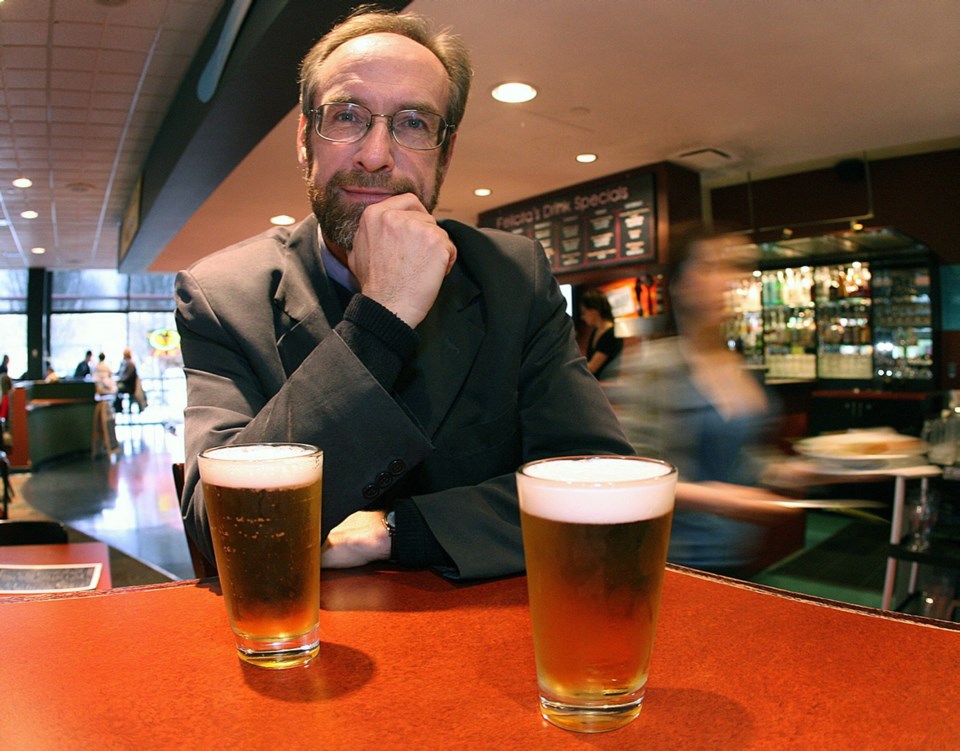Just because alcohol is legal doesn’t mean it should be disqualified from harm-reduction programs, says a University of Victoria psychologist.
“Alcohol can kill you in more ways than heroin can,” said Tim Stockwell, director of the Canadian Institute for Substance Use Research.
“But somehow it doesn’t deserve the same level of respect in harm-reduction treatments as other substances.”
Stockwell, a psychology professor, and Bernie Pauly, associate professor in the UVic department of nursing, edited a special issue of the international, peer-reviewed Drug and Alcohol Review that includes four papers from the Canadian Managed Alcohol Program Study.
The study examined programs in which participants are provided daily, regular and measured doses of alcohol to cope with their addictions. The doses, usually equivalent to one standard drink, are usually offered at intervals, such as every hour or 90 minutes. Housing, food and other supports are typically provided, as well.
Stockwell said managed-alcohol programs are a radical idea being pursued seriously only in Canada. One of the first arose 25 years ago after three people froze to death in Toronto. They had been denied shelter spaces because they were drunk.
Data for the papers were collected from about 380 people in 13 programs across Canada, including two in the Lower Mainland.
Susan Alexman, director of programs for PHS Community Services Society in Vancouver, said her agency is offering two managed-alcohol programs, one as part of a subsidized-housing project.
The other PHS service is community-based. Clients are expected to show up at the PHS centre for drinks, in some cases getting them in exchange for things such as non-beverage alcohol, which includes mouthwash and rubbing alcohol.
Don Evans, executive director of Our Place in Victoria, said his group has considered managed alcohol in the past but gave up because it didn’t have the space or resources.
But Evans said he believes it’s a good idea for severe alcoholics who will resort to brain-damaging substances such as mouthwash or rubbing alcohol when beverage alcohol is beyond reach.
Managed-alcohol programs are “meant for people who have tried everything else, and so it’s a last resort,” he said.
Evans also said he believes managed-alcohol programs are best offered in a therapeutic-recovery community.
Housing, food and fellowship should be provided along with enough alcohol to keep addictions under control. It works better than simply detox and treatment, which usually wrap up after 30 to 60 days.
“I believe the therapeutic recovery community model is the best option for treatment because it’s long term,” he said.
Stockwell said managed-alcohol programs have largely operated “under the radar.”
Social attitudes wouldn’t accept the notion of openly providing alcoholics with beer, wine or spirits.
But, he said, the programs are aimed primarily at people whose addictions have left them homeless and possibly in danger of dying — a small subset for whom abstinence programs haven’t worked.
“The great majority are trying to deal with severe alcohol problems and homelessness and other physical or mental-health problems,” he said.
When combined with shelter and food, the programs can help improve health and social contacts with family and community.
Stockwell said one of the most pronounced withdrawal symptoms with alcohol is extreme anxiety, often expressed as wondering where that next drink is to be had.
As a result, it often took time for people enrolled in managed-alcohol programs to accept and believe they would be given regular drinks. Afterward, their anxiety could be controlled.
“They were told: ‘You will get access to alcohol on the hour,’ ” he said. But at first “they weren’t really convinced it was going to going to happen.”
Once confidence was established, people in the program found it easier to moderate their consumption and begin a more healthy lifestyle. Relationships with family resumed, and in a few cases, clients even moved on to full, sober recovery.
“Once they always knew it was coming, they thought: ‘Well, I can wait another 20 minutes,’ ” Stockwell said. “It became easier for them to control their cravings for alcohol.”



